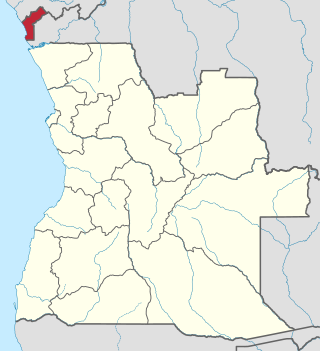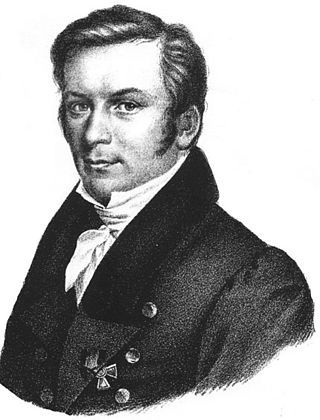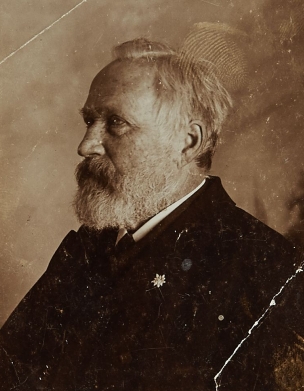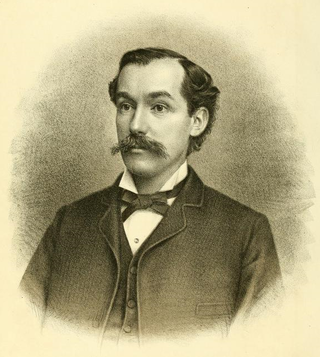Related Research Articles

Cabinda is an exclave and province of Angola, a status that has been disputed by several political organizations in the territory. The capital city is also called Cabinda, known locally as Tchiowa, Tsiowa or Kiowa. The province is divided into four municipalities—Belize, Buco-Zau, Cabinda and Cacongo.

Henry Walter Bates was an English naturalist and explorer who gave the first scientific account of mimicry in animals. He was most famous for his expedition to the rainforests of the Amazon with Alfred Russel Wallace, starting in 1848. Wallace returned in 1852, but lost his collection on the return voyage when his ship caught fire. When Bates arrived home in 1859 after a full eleven years, he had sent back over 14,712 species of which 8,000 were new to science. Bates wrote up his findings in his best-known work, The Naturalist on the River Amazons.

Namibe Province is a province of Angola. Under Portuguese rule it was the Moçâmedes District. It has an area of 57,091 km2 and had a 2014 census population of 495,326. The port and city of Moçâmedes is the capital of the province with a population of 250,000 in 2014. Iona National Park lies within the province.

Johann Friedrich Gustav von Eschscholtz was a Baltic German physician, naturalist, and entomologist. He was one of the earliest scientific explorers of the Pacific region, making significant collections of flora and fauna in Alaska, California, and Hawaii.

Charles Pickering was an American naturalist, curator, author, and physician.
Edward Breitung was a politician from the U.S. state of Michigan. He served one term in the United States House of Representatives from 1883 to 1885.
José Alberto de Oliveira Anchieta was a 19th-century Portuguese explorer and naturalist who, between 1866 and 1897, travelled extensively in Portuguese Angola, Africa, collecting animals and plants. His specimens from Angola and Mozambique were sent out to Portugal, where they were later examined by several zoologists and botanists, chiefly among them J.V. Barboza du Bocage.

Ralph Tate was a British-born botanist and geologist, who was later active in Australia.

Benedykt Tadeusz Dybowski was a Polish naturalist and physician.

The Republic of Cabinda was an independent protectorate of Portugal that was taken over by Angola after Portugal declared Angola a free country. It is currently an unrecognized state which Angola considers its Cabinda Province. The Front for the Liberation of the State of Cabinda-Exército de Cabinda (FLEC) claimed sovereignty just after the Republic of Cabinda was proclaimed as an independent country in 1975 from Portugal and just after Angola invaded. The government of this entity operates in exile, with offices located in Paris, France, and Pointe Noire, Republic of the Congo.
The colonial history of Angola is usually considered to run from the appearance of the Portuguese under Diogo Cão in 1482 (Congo) or 1484 until the independence of Angola in November 1975. Settlement did not begin until Novais's establishment of São Paulo de Loanda (Luanda) in 1575, however, and the Portuguese government only formally incorporated Angola as a colony in 1655 or on May 12, 1886.
The 2000s in Angola saw the end of a 27-year-long civil war (1975–2002) and economic growth as foreign nations began to invest in Angola's untapped petroleum reserves. The government continues to resettle internally displaced persons as its economy recovers and expands.
Mining in Angola is an activity with great economic potential since the country has one of the largest and most diversified mining resources of Africa. Angola is the third largest producer of diamonds in Africa and has only explored 40% of the diamond-rich territory within the country, but has had difficulty in attracting foreign investment because of corruption, human rights violations, and diamond smuggling. Production rose by 30% in 2006 and Endiama, the national diamond company of Angola, expects production to increase by 8% in 2007 to 10,000,000 carats (2,000 kg) annually. The government is trying to attract foreign companies to the provinces of Bié, Malanje and Uíge. Angola has also historically been a major producer of iron ore.

Ludwig Phillip Heinrich Becker was a German artist, explorer and naturalist. He was born in Rödelheim near Frankfurt am Main. He moved to Australia in 1850, and was a member of the ill-fated Burke and Wills expedition. He died at the expedition's camp on the western bank of Koorliatto Waterhole, Bulloo River in 1861.

William West, FLS was an English pharmacist, botanist, microscopist and writer, particularly noted for his studies of freshwater algae. His sons, both botanists, were William West Jr with whom he did fieldwork, and George Stephen West with whom West co-wrote botanical publications for more than 20 years.

Portuguese Angola refers to Angola during the historic period when it was a territory under Portuguese rule in southwestern Africa. In the same context, it was known until 1951 as Portuguese West Africa.

Mary Elizabeth Barber was a pioneering British-born amateur scientist of the nineteenth century. Without formal education, she made a name for herself in botany, ornithology and entomology. She was also an accomplished poet and painter, and illustrated her scientific contributions that were published by learned societies such as the Royal Entomological Society in London, the Royal Botanical Gardens in Kew, and the Linnean Society of London.
Rose Monteiro was a late-19th-century plant collector and naturalist who spent several years in Lourenço Marques on Delagoa Bay, Mozambique.

Thomas George Gentry was an American educator, ornithologist, naturalist and animal rights writer. Gentry authored an early work applying the term intelligence to plants.
Hermann Soyaux was a German botanist and explorer.